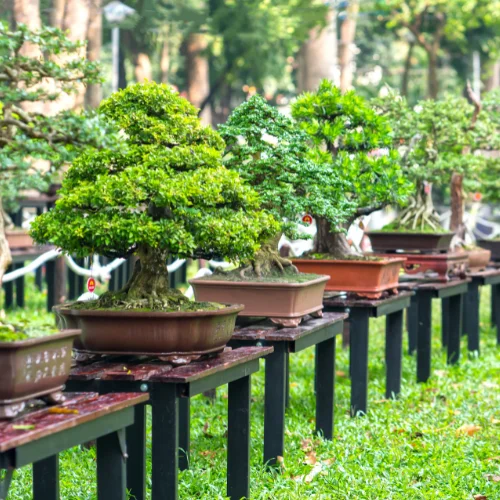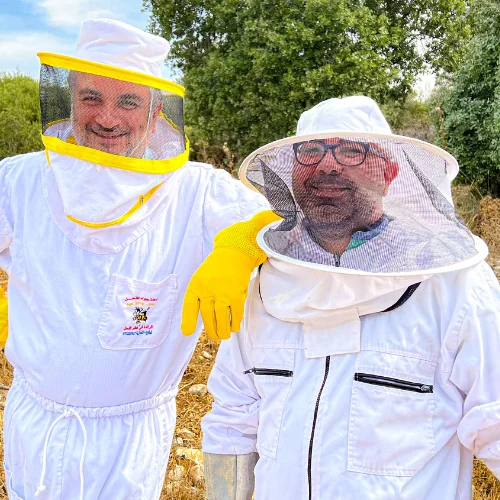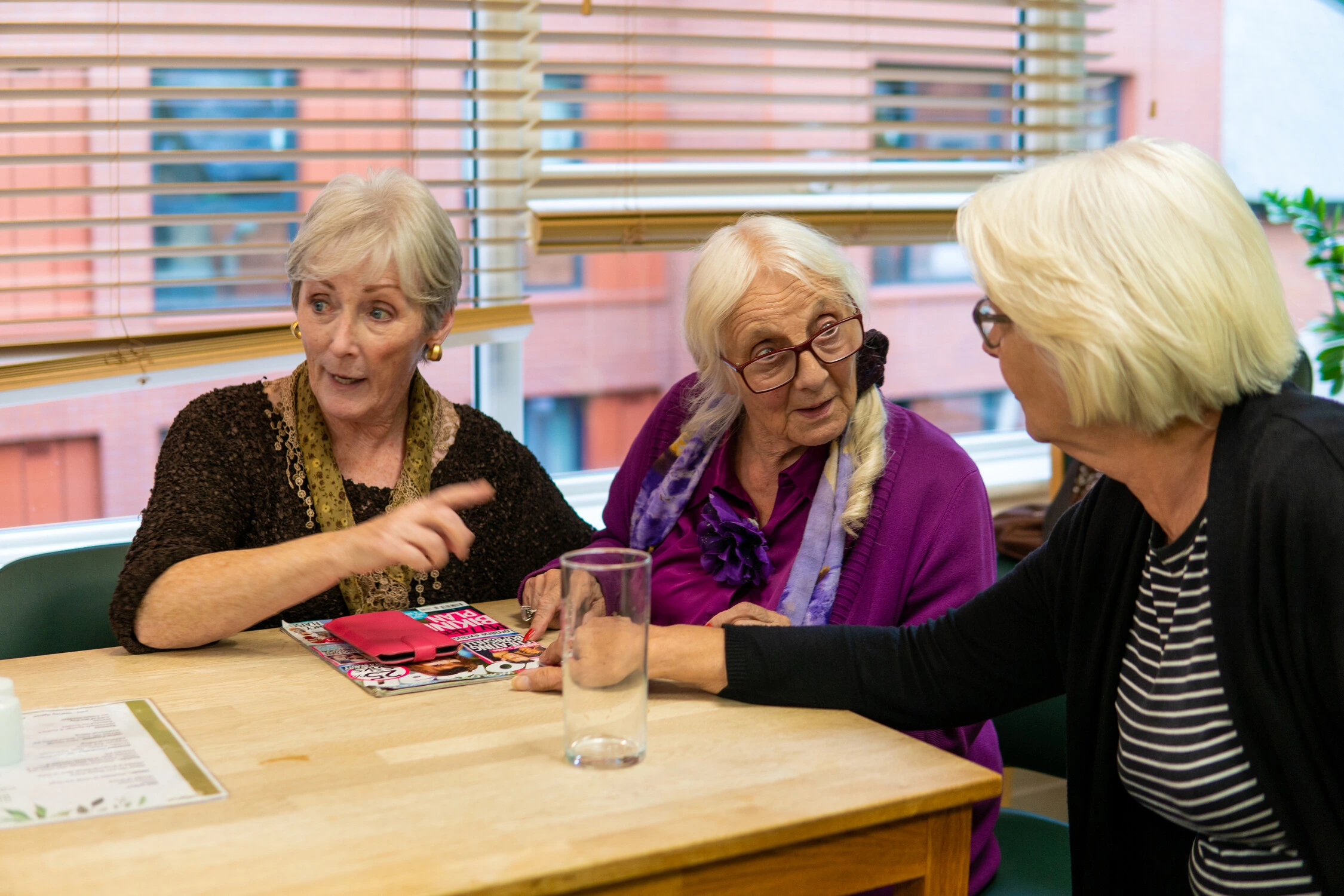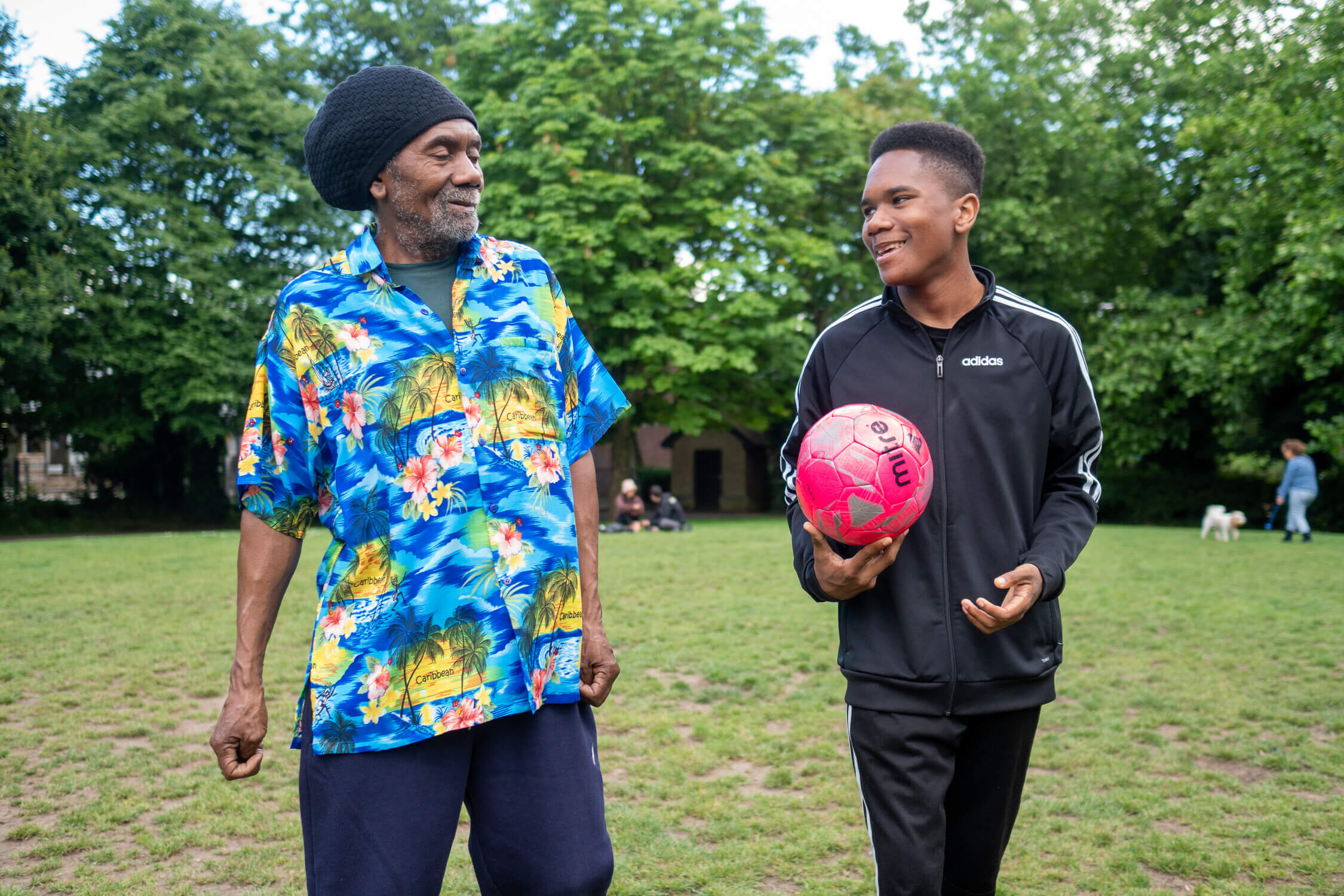10 Unusual Hobbies for Seniors
Seniors have a wealth of wisdom and experience, and retirement provides the perfect opportunity to explore new hobbies and interests. While some may think that age limits the options available, there are countless activities that can captivate the minds and hearts of seniors. In this blog post, I will share with you 10 unusual hobbies that are not only enjoyable but also beneficial for seniors’ physical and mental well-being. So, let’s dive in and discover some exciting hobbies that can bring joy and fulfillment to the lives of seniors!
Here are some of the unusual and uncommon hobbies for seniors
1. Geocaching

Geocaching is a modern-day treasure hunt that combines the thrill of adventure with technology. Participants use GPS-enabled devices to navigate to hidden containers, known as geocaches, which are placed in various locations worldwide. Seniors can engage in this hobby individually or as part of a group, making it an excellent way to stay active, explore new places, and connect with nature. Geocaching provides mental stimulation, problem-solving challenges, and a sense of accomplishment upon finding hidden treasures.
2. Urban Sketching

For seniors who have an eye for art and a love for the urban environment, urban sketching is a perfect hobby. It involves going out into the city or town and sketching scenes and landscapes directly from observation. Urban sketching encourages seniors to appreciate the beauty of their surroundings, enhances their artistic skills, and provides an opportunity for socializing with fellow artists. All that is needed is a sketchbook, pencils, and a keen eye for capturing the essence of the urban landscape.
3. Bonsai Gardening

Bonsai gardening is a centuries-old Japanese art form that involves cultivating miniature trees in containers. This hobby requires patience, precision, and a deep understanding of horticulture. Seniors can spend hours meticulously pruning, shaping, and caring for their bonsai trees, creating living works of art. Bonsai gardening offers a sense of tranquility, promotes mindfulness, and allows seniors to connect with nature on a deeper level.
4. Radio-controlled Vehicles
For those with a passion for technology and remote control gadgets, radio-controlled (RC) vehicles can be an exciting hobby. Whether it’s operating RC cars, boats, planes, or drones, seniors can immerse themselves in the world of RC vehicles and experience the thrill of piloting these miniature machines. This hobby promotes hand-eye coordination, problem-solving skills, and can be enjoyed both indoors and outdoors.
5. Beekeeping

Beekeeping is a fascinating and rewarding hobby that not only benefits the environment but also provides seniors with a sense of purpose. By tending to beehives, seniors can learn about the complex lives of bees, produce their own honey, and contribute to the pollination of plants in their community. Beekeeping requires careful observation, attention to detail, and a willingness to learn, making it an intellectually stimulating and physically engaging hobby.
6. Ballroom Dancing
Ballroom dancing is a timeless hobby that can keep seniors physically active while providing an outlet for self-expression and social interaction. From the elegance of waltz to the vibrant moves of salsa, ballroom dancing offers a wide range of styles to explore. It improves balance, coordination, and cardiovascular health, and also boosts cognitive function through learning and remembering dance routines.
7. Genealogy
Delving into one’s family history and exploring the roots of their lineage is a captivating hobby for seniors. Genealogy involves researching and documenting family trees, uncovering stories of ancestors, and connecting with relatives across generations. Seniors can utilize online resources, historical records, and DNA testing to piece together their family’s narrative. This hobby stimulates curiosity, promotes critical thinking, and creates a sense of identity and belonging.
8. Creative Writing

Creative writing is an excellent hobby for seniors to express their thoughts, memories, and imaginations. Whether it’s writing short stories, poems, or personal memoirs, seniors can find solace in the written word. Writing enhances communication skills, improves memory retention, and provides an outlet for self-reflection and emotional well-being. Seniors can join writing groups or even start a blog to share their stories with others.
9. Volunteering

Volunteering is a fulfilling hobby that allows seniors to give back to their community and make a positive impact on others’ lives. Whether it’s tutoring, mentoring, or assisting at local shelters or hospitals, seniors can find various volunteer opportunities based on their interests and skills. Volunteering provides a sense of purpose, social connection, and the satisfaction of helping those in need.
10. Astrophotography
Astrophotography combines a love for photography with an interest in the night sky. Seniors can capture stunning images of celestial objects, such as stars, planets, and galaxies, using specialized equipment and techniques. This hobby encourages seniors to explore the wonders of the universe, learn about astronomy, and create visually captivating photographs. Astrophotography cultivates patience, attention to detail, and a deep appreciation for the vastness of space.
Is it normal for a senior to engage in unusual or uncommon hobbies?
Yes, it is absolutely normal for seniors to engage in unusual or uncommon hobbies. As individuals age, they often find themselves with more free time and a desire to explore new interests. Engaging in uncommon hobbies can provide a sense of fulfillment, stimulate mental and physical activity, and enhance overall well-being.
Firstly, pursuing unusual hobbies allows seniors to break free from the monotony of everyday routines and experience new challenges. After retirement, many seniors may find themselves with ample leisure time that they wish to fill with activities that bring them joy.
These hobbies can range from collecting rare coins or stamps to learning a musical instrument or even practicing martial arts. By venturing into these uncharted territories, seniors can reignite their sense of curiosity and embark on exciting new adventures.
Additionally, engaging in uncommon hobbies can provide seniors with mental and physical stimulation, promoting cognitive health and overall well-being. Learning and mastering a new skill, such as painting or sculpting, stimulates the brain and enhances cognitive abilities. These hobbies require focus, creativity, and problem-solving skills, which can help seniors maintain mental agility and prevent cognitive decline.
Unusual hobbies may also involve physical activities like hiking, gardening, or dancing, which contribute to improved physical fitness, flexibility, and overall health.
Furthermore, pursuing uncommon hobbies can foster social connections and a sense of community among seniors. Joining niche interest groups or clubs centered around these hobbies allows individuals to connect with like-minded peers and establish new friendships.
For example, seniors who engage in bird watching can join local birding societies, participate in outings, and exchange knowledge and experiences with fellow enthusiasts. These social interactions provide a support network and combat social isolation, a common challenge faced by seniors.
Importantly, uncommon hobbies offer seniors a chance for self-expression and personal growth. Engaging in activities that deviate from traditional expectations allows seniors to explore their individuality and pursue their passions without constraints.
Whether it’s learning to play the ukulele, experimenting with photography, or even writing poetry, these hobbies provide seniors with avenues for self-discovery and personal fulfillment. They can develop new skills, uncover hidden talents, and create a sense of purpose and accomplishment.
What should I do when I see a senior family member engaging in unusual hobbies? Should I be concerned?
When encountering a senior family member who is pursuing unusual hobbies, it is natural to feel a sense of curiosity and concern. However, it is important to approach the situation with an open mind and consider several factors before jumping to conclusions.
Firstly, it is crucial to remember that hobbies can bring joy, purpose, and mental stimulation to individuals of all ages. Seniors, in particular, often have more free time to explore new interests and may choose activities that might seem unconventional to younger generations. Rather than immediately expressing concern, take a step back and try to understand their motivations and the potential benefits that their hobbies may provide.
For example, if your elderly relative has taken up painting, they might be enjoying the therapeutic and creative outlet it offers, enhancing their overall well-being.
Secondly, it is essential to assess whether the unusual hobby poses any potential risks or harms to the senior family member’s physical or mental health. While unconventional hobbies themselves are not necessarily a cause for concern, it is crucial to ensure that they are engaging in activities that are safe and within their physical capabilities.
If, for instance, a senior family member has developed an interest in extreme sports like skydiving or rock climbing, it may be necessary to discuss their health and consult with a doctor to determine whether such activities are appropriate given their age and physical fitness level.
Furthermore, maintaining open lines of communication is key to understanding the underlying reasons behind their pursuit of unusual hobbies. Initiating a non-judgmental conversation with the senior family member can provide valuable insights into their motivations and help alleviate any concerns that arise.
For instance, if an elderly relative has started collecting unique insects, it may be worth discussing their fascination with nature and the educational aspects of their hobby. By showing genuine interest and support, you can strengthen your relationship with them while gaining a deeper understanding of their newfound passion.
Ultimately, when encountering a senior family member engaged in unusual hobbies, it is important to strike a balance between concern and support. While initial worry is natural, it is crucial to approach the situation with an open mind and gather more information before drawing conclusions.
How can seniors benefit from engaging in hobbies they are passionate about?
Engaging in hobbies that seniors are passionate about can bring numerous benefits and enhance their overall well-being. Firstly, participating in hobbies provides seniors with a sense of purpose and fulfillment. After retirement, many older adults may experience a void in their lives due to the loss of work-related responsibilities.
Hobbies fill this void by giving them something to look forward to and helping them maintain a sense of structure and meaning in their daily routines. For instance, a senior who has a passion for gardening may feel a deep sense of satisfaction and accomplishment when tending to their plants and seeing them flourish.
Additionally, pursuing hobbies can improve seniors’ mental and emotional well-being. Engaging in activities they enjoy stimulates their minds, promotes cognitive function, and helps keep their brain sharp. Whether it’s solving puzzles, painting, or playing a musical instrument, these hobbies provide mental stimulation and can contribute to the prevention of cognitive decline.
Moreover, hobbies can serve as a creative outlet, allowing seniors to express themselves and unleash their imagination. For example, seniors who enjoy writing can use their hobby to explore their thoughts and feelings, potentially improving their emotional well-being and providing a healthy outlet for self-expression.
Participating in hobbies also promotes social interaction and helps seniors stay connected with others. Joining clubs, groups, or classes related to their interests provides opportunities for seniors to meet like-minded individuals and form new friendships. This social aspect of hobbies is crucial for combatting feelings of isolation and loneliness that can sometimes accompany old age.
Engaging in activities together with others fosters a sense of belonging and community, which can have a positive impact on seniors’ mental health and overall quality of life. For instance, a senior who enjoys playing golf may join a local seniors’ golf league, where they can not only indulge in their hobby but also develop social connections with fellow golf enthusiasts.
Furthermore, hobbies can have physical health benefits for seniors. Many hobbies involve physical activity, which is crucial for maintaining good health and mobility in old age. Whether it’s gardening, dancing, or swimming, these activities help seniors stay active, improve cardiovascular health, enhance muscle strength, and maintain flexibility.
Regular physical activity through hobbies can also reduce the risk of chronic conditions such as heart disease, diabetes, and osteoporosis. For example, a senior who takes up hiking as a hobby can enjoy the physical benefits of walking in nature while also experiencing the mental and emotional benefits of being in a peaceful outdoor setting.
In conclusion, engaging in hobbies that seniors are passionate about brings numerous benefits to their lives. These activities provide a sense of purpose and fulfillment, improve mental and emotional well-being, promote social interaction, and contribute to physical health.
Whether it’s pursuing a lifelong interest or discovering new hobbies, seniors can find joy, companionship, and personal growth through engaging in activities they love. The key is to encourage and support seniors in exploring and continuing their hobbies, as it can have a significant positive impact on their overall well-being and quality of life.
Conclusion
Age should never be a barrier to exploring new hobbies and interests. The hobbies mentioned above offer a range of activities that can engage seniors physically, mentally, and emotionally. From the thrill of geocaching to the tranquility of bonsai gardening, there’s something for everyone.
So, why not embark on a new adventure today? Share your thoughts and experiences in the comments below. What unusual hobbies have you discovered that bring you joy in your senior years?
